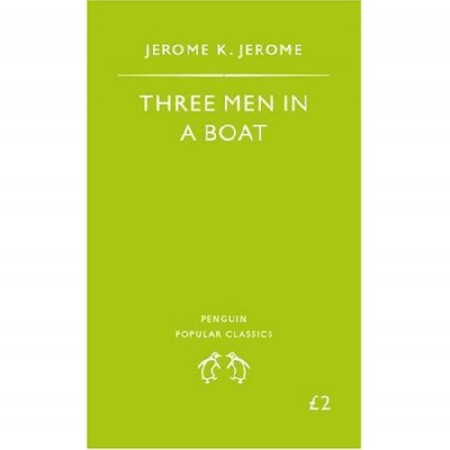What Simon Said
30 september 2009 | In BBC TV | Comments?I’m a big fan of british comedy panel shows. Have I Got News For You, of course (would they benefit from a new permanent host? If so, my vote is for Kirsty Young or Alexander Armstrong, both being capable of reading the autocue with the right form of detachment), QI, because it got Stephen Fry by the bucket in it, plus the rest of my favorite participiants (I could, and probably will, write at length about the supporting role of Phil Jupitus, the trademark rant of David Mitchell, the off-on-a-tangent brilliance of Bill Bailey etc.), even Mock the Week (Dara O’Briain’s physics jokes, Frank Boyle’s pseudo-psychopathy) and Would I Lie to You (sad to see Angus Dayton leave, but it is a much better vehicle for Rob Brydon), and I haven’t even started listing the radio shows.
And then there is Nevermind the Buzzcocks, returning to BBC tomorrow without the adorable and irreverent Simon Amstell, whose hosting for the past few years can hardly be improved upon. Seriously: when it comes to sheer comedy brilliance, Amstell’s hosting off Buzzcocks is comparable to series 3-5 of the Simpsons. And, even more remarkable for a topical quiz show (about pop-music, no less), it seems to age remarkably well. It’s as much what he says (reads) as how he says it and to whom. Like the question ”When did you first realise that you had what it takes to be Rod Stewarts daughter?” or, to David Gest: ”You’ve must have met Grace Jones? Or married her?” . Or, when Noel Fielding pointed out that Courtney Love could break him (Amstell) ”like a twiglet”: ”Or kill me, and make it look like suicide” (BBC included a disclaimer in that episode.) I’m probably not alone in pleading to the BBC to release the episode with Russell Brand which got cut as part of the official punishment of Brands ill-advised phone calls.
The upcoming series will probably be more or less like when Mark Lamarr left, i.e. a long audition for a new permanent host. It will probably falter for a bit, but I will be there to watch it do so, and so will enough people to keep it running.
Bored by Happiness?
29 september 2009 | In Books Happiness research Hedonism | 1 CommentI write occasionally on this blog called ”the Happiness Blog” (in swedish), which is mostly about psychological, behavioral and political strategies to increase happiness. It’s a fairly honourable pursuit, and the research it is based on is fascinating both in its robust results and in the large areas of it that are still very much up for discussion.
Recently, however, I’ve noticed a lot of reactions to this research that is, well, bored by the whole thing. This is not too surprising, the new wave of books that made it a trend culminated, I’d say, in 2005, and it was bound to get old sooner or later. This autumn will see a surge of books on the subject written in swedish, so we might expect even more of these reactions. The stuff is still highly relevant, of course, eternally so, but there is a bit of a PR problem here. We need to move on from the basics, perhaps even construe some disagreements about different happiness-researchers so that the reaction against a certain view on how happiness should be promoted turns into an argument for an alternative view. (People do this in literary criticism All The Time.)
A big problem, (as I’ve noticed in the mixed reception of my own vain attempts for media attention), is that the criticism vastly underestimate the complexity of the happiness researchers claims. While I’m actually quite pleased that books with some scientific credentials is budding in on the self-help market, it also opens up for poorly researched self-help books to dress up as science. While happiness-reserachers, often believe that even poorly reasoned self-help books might do more benefit than harm, its important to keep a certain distance. At least if we want the coverage, and the discussion, to become more nuanced and the full complexity of the research be allowed to surface.
Who likes short shorts?
26 september 2009 | In Hedonism Meta-ethics Naturalism Self-indulgence Uncategorized | 2 CommentsLately, the question ”what is your dissertation about” has become somewhat more frequently asked of me. Forthy-five minutes later, I usually get the impertinent question if I’d mind making the answer a bit shorter. Well, I do mind, but allright. So I end up experimenting with different short-versions, none of which is unqualifiedly true. But then again, to be unqualifiedly true is pretty much to ask of any theory. After all, my argument is that hedonism is true enough. Anyway: I’d thought I’d give it another go, and to give you in less than, say 200 words, the gist of my theory of value. Ready? Here we go:
What’s good? Opinions diverge, so we turn to the more basic question: What do we say when we say that something’s good? What would make that statement true? Theories are wildly at odds with each other. What to do? It seems we are dealing with different uses of the term ’good’, and we must decide how to treat this problem. The first decision is to look for their common origin, so we can say that these uses are variations on a common theme. The other decision is to treat goodness as a natural property.
Whatever value is, it must correspond to what we believe about it. We might be mistaken about it, but cannot be totally wrong. Value should fit with our beliefs about value and be part of the causal explanation of those beliefs. I argue that pleasure fits with many of our value beliefs, especially regarding how value relates to motivation, and it is universally believed to be valuable. Hedonic processes, are also a key part of the causal explanation of our evaluations, and evaluating abilities. This means that the common beliefs that the theory does not make true, it can explain away. Pleasure is value.
How did I do?
Philosophical strategy
22 september 2009 | In Meta-philosophy | 2 CommentsWhen philosophical questions are being asked, my go-to answer is usually ” ’Yes’, with an ’if’, or ’No’ with a ’but’ .”
Do we have free will? Well, yes, if you’re prepared to accept being within a certain range of mental parameters as having free will. No, if you are looking for something somehow else. Then there is no free will, but there is a pretty good substitute, one that quite closely fits with what we expect from free will, and makes it possible to distinguish between free and unfree acts in a way corresponding to our intentions in using that term. And so on for God, virtues, consciousness, value, causation, etc.
As the discerning reader will no doubt have noticed by now, the ”yes” and ”no” answers can be roughly the same: the qualifications push them into roughly the same position. Which is why one should never rely to much on the fact that one philosopher says ”yes” and the other ”no” to a particular question. Nor, of course, should one rely on the fact (if it ever is one) that two philosophers seem to agree. But mostly, one should take to heart the words of Robert Webb, playing that part of a raging host of the radio show ”Big Talk”:
Guest (being asked whether there is a God): Well, there is no yes or no answer.
Webb: What? I can think of two yes or no answers right of the top of my head!
Confession
21 september 2009 | In Books | Comments?In one of David Lodge’s campus novels (”as opposed to what?” I hear you say. ”His social-realistic stories set in the rural south? They’re all campus novels”. Fair point) we come across the parlour game ”Humiliation” . Each participiant writes down the name of a book he or she hasn’t read. The winner, in a purely technical sense, is the participant whose choosen book has been read by the largest number of participiants (Hint: writing down ”the Da Vinci Code” doesn’t work half as often as you might think. It neither wins you the game, nor endears you to your friends). The name of the game, I take it, is fairly self-explanatory. In the novel (”Nice work”, it might have been. Or ”Small world”), a professor of english literature, desperate to win, owns up to not having read ”Hamlet” and is subsequently fired from his position.
Anyway, I’m just about to loose my winning entry for this game. I’m finally reading ”Three men in a boat”. The fact that I haven’t read it already is not so much humiliating, perhaps, as inexplicable. Not only is it the hands down, drop dead funniest book I’ve ever read, it is also, arguably, the source of everything that have been funny every since. Literary slap-stick at its best, and a grand festival of non-sequiturs. It is also an excellent display of that celebrated, scorned and recently hotly debated comic device: the cutaway joke. Done well, as it is in ”three men”, it doesn’t bring the story to a screetching halt, or it does, but you don’t mind. The point is that what’s beside the point (or beside the plot, anyway), just is the point.

Post Doc Posts Document
15 september 2009 | In blogg-launch Hedonism Self-indulgence | 2 CommentsSay you’re interested in the nature of pleasure. Say you’ve harbored hedonistic inclinations all of your life, but haven’t really found a version of that theory that really fits with your empiricist life-style. Say that you find meta-ethics absolutely hilarious and the publishing industry just can’t turn out books on the subject fast enough for you. Quite besides the obvious fact that you and I should be friends, (Facebook friends at least – all the information, none of the guilt for not calling, or caring, really), here is something you might be interested in.
It’s my dissertation, ”Hedonism as the Explanation of Value”, which I (successfully, I might add) defended in Lund, Sweden on Saturday the 12th of september.
Lady who Launches
15 september 2009 | In blogg-launch | 1 Comment”What are you doing, Dave? This is highly irregular”. Right you are, Hal, but that’s ”Dr Brax” to you. The irregularity referred to is this: my posting a blog, and having every intention to make a habit of writing on it. About philosophy, mainly, and about the parts of the empirical sciences that are relevant to philosophy, especially the moral and evaluative parts of it.
But I’m sure I will write about books and music and TV here as well. I believe we’re about to have fun, ladies and gentlemen, I really do.
